The Importance of Mission
By Jon Callaghan, September 5, 2012
We had an incredible summer at True, with enormous portfolio growth, several very exciting new investments, and a hugely productive retreat at Stinson Beach. As discussed many times on this blog, “Stinson” is an annual tradition for our team. It’s a place to get away from the office together and, in the words of True Founder Kai Backman of Tinkercad, “take time off to actually think about work.”
Stinson is a way for us to cross check ourselves against True’s mission of making the world a better place for entrepreneurs. Being mission-focused as a firm has been essential to our direction and success, and we’ve always strived to invest in mission-based Founders. But while discussing mission at this past Stinson, we pushed the concept even further, realizing that a strong sense of mission can create a movement, and movements create sustainable, long-term companies (more on this in a future post).
True portfolio companies like Automattic (WordPress), Puppet, Fitbit, MakerBot, and Ginger.io have broken out of the pack in their industries early and fast, and one thing these companies have in common is an enormous sense of mission. Some call them “missionary entrepreneurs.” Their missions are value-based and therefore quickly understood: build incredible web-scale software for the future of web publishing; create a simplified platform that allows for consistent, transparent and flexible systems management; make the world healthier through every day activity; redefine matter and place; and help populations get healthier before they get sick. Note that these missions aren’t the ones posted on their websites, but these are the missions I associate with each of the movements behind these companies.
A sense of mission communicates values to the world, and we humans are value-oriented. We’re wired to align with (or reject) values, and we do this with our intuitive brain. We don’t need to immediately think through whether one product is better, faster or cheaper than the other. That can come later, but your brain quickly seizes on a company’s (or Founder’s) mission, and if it resonates, you commit.
In the early days, a missionary zeal and vision are essential to communicating your meaning and goals to the world. They are also essential to your inward focus on early product and team development. Early product choices line up nicely behind the sense of your company’s mission. Does that first release really make life easier, more beautiful, and faster for your customer? Or is it designed to get an early press bump or simply best the competition in a space? Are you after higher goals of simplicity and speed, or are you simply trying to get something out there in order to appease certain constituents? These are never easy choices for a startup, but a clear sense of mission helps cut through the fog and helps you prioritize. Sometimes it’s enough just to slow down as a team and ask the question of yourselves.
Our experience is that mission-driven Founders pay intense attention to the specific needs of their customers. These Founders are incredibly close to their customers, watching and working with them each day to help them succeed. Think of a movement like WordPress or Puppet…in each case, the companies and developers are intertwined and motivated to improve the product for each other, and this closeness creates intense communication and collaboration. The Fitbit Founders are obsessed with customer experience and meeting the future needs of an active population. This inspired the introduction of the beautiful Aria scale and several changes to the Fitbit dashboard. Being close to your customer means you’re more likely to witness subtle changes in their preferences or behaviors. This keeps you ahead and allows you to change product or other aspects of your company as customer needs change.
Mission helps you scale. More people are hard to manage, and the dirty little secret of being a creative Founder is that it gets much harder (and, in many cases, much less fun) to build a company as it grows. Growth takes a Founder away from the things he or she loves, like building product. This usually happens because as Founder, you are the go-to for everything…decisions large and small end up on your desk, and as more people join your team, your time is consumed by managing people and resolving conflicting priorities. This can easily suck you in, pulling you away from the heart and soul of the company. Joe Kraus’s awesome post, “First, Fire Thyself,” has been much discussed by the True Founder Community, and it’s a must read around this topic.
Mission can help you maintain clarity amidst scale. Hiring folks who align behind a strong mission and building a culture around it makes the team more easily see the “right” path, or at least the path that aligns with your vision. Make no mistake that growth is a challenge, but growth without mission is like life without meaning. A mission-based culture reinforces across the entire company the values with which people can make decisions. Ideally, this informs every decision: from the enormous strategic ones all the way down to how guests are received in your lobby, how support responds to a complaint, or how easy you make it to unsubscribe from your company’s products.
Notice how these “little” decisions often say big things about a company. As you grow, you don’t have the time to make them all.
Let your mission make them for you.




